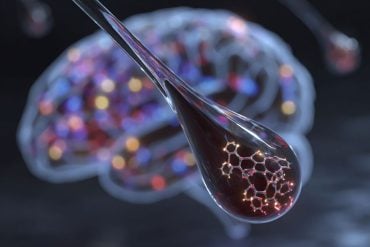Summary: A new study reveals that the absence of the TRMT10A enzyme disrupts tRNA levels, leading to impaired protein synthesis and brain function. Researchers found that mice lacking the Trmt10a gene had decreased levels of key tRNAs, which affected neuronal synapses and cognitive abilities.
The findings suggest that while tRNA reduction occurs in multiple tissues, the brain is particularly vulnerable to its effects. This research could pave the way for new therapies targeting tRNA modification to treat intellectual disabilities.
Key Facts:
- Loss of TRMT10A reduces key tRNA levels, affecting brain protein synthesis.
- Synapse function and cognitive abilities were impaired in mice lacking Trmt10a.
- The study highlights potential for new therapies targeting tRNA modification.
Source: Kumamoto University
A groundbreaking study conducted by a research team from Kumamoto University has shed light on the critical role of a tRNA methylation enzyme, TRMT10A, in supporting brain function.
The findings reveal how the absence of TRMT10A leads to a reduction in specific transfer RNA (tRNA) levels, disrupting protein synthesis in the brain and impairing synaptic structure and function.

The research group created mice lacking the Trmt10a gene and measured tRNA levels in the brain. They discovered a significant decrease in two types of tRNA: the initiator methionine tRNA, essential for starting protein synthesis, and a specific glutamine tRNA. This reduction resulted in diminished protein synthesis of key genes in the brain, particularly those associated with neuronal function.
Consequently, the structural integrity and plasticity of synapses—crucial for learning and memory—were compromised, leading to impaired cognitive abilities in the mice.
Remarkably, while a decrease in initiator methionine and glutamine tRNA levels was observed throughout various tissues, functional impairments were limited to the brain, indicating its particular vulnerability.
Lecturer Takeshi Chujo from the Faculty of Life Sciences, Kumamoto University, who led the research, stated: “Since human cells lacking TRMT10A exhibited similar reductions in these tRNA levels, it suggests that the mechanisms we discovered in mice could likely apply to humans as well.”
The study highlights the importance of a universal tRNA modification for translation of specific codons. With these insights, the research team aims to explore whether preventing the decline of tRNA levels in the brain could mitigate functional impairments, potentially leading to novel therapeutic approaches for treating intellectual disabilities caused by tRNA modification deficiencies.
This research not only enhances our understanding of RNA modification diseases but also opens doors to innovative strategies for addressing cognitive challenges linked to these conditions.
About this genetics and synaptic plasticity research news
Author: Nuo LI
Source: Kumamoto University
Contact: Nuo LI – Kumamoto University
Image: The image is credited to Neuroscience News
Original Research: Open access.
“TRMT10A dysfunction perturbs codon translation of initiator methionine and glutamine and impairs brain functions in mice” by Takeshi Chujo et al. Nucleic Acids Research
Abstract
TRMT10A dysfunction perturbs codon translation of initiator methionine and glutamine and impairs brain functions in mice
In higher eukaryotes, tRNA methyltransferase 10A (TRMT10A) is responsible for N1-methylguanosine modification at position nine of various cytoplasmic tRNAs.
Pathogenic mutations in TRMT10A cause intellectual disability, microcephaly, diabetes, and short stature in humans, and generate cytotoxic tRNA fragments in cultured cells; however, it is not clear how TRMT10A supports codon translation or brain functions.
Here, we generated Trmt10a null mice and showed that tRNAGln(CUG) and initiator methionine tRNA levels were universally decreased in various tissues; the same was true in a human cell line lacking TRMT10A.
Ribosome profiling of mouse brain revealed that dysfunction of TRMT10A causes ribosome slowdown at the Gln(CAG) codon and increases translation of Atf4 due to higher frequency of leaky scanning of its upstream open reading frames.
Broadly speaking, translation of a subset of mRNAs, especially those for neuronal structures, is perturbed in the mutant brain.
Despite not showing discernable defects in the pancreas, liver, or kidney, Trmt10a null mice showed lower body weight and smaller hippocampal postsynaptic densities, which is associated with defective synaptic plasticity and memory.
Taken together, our study provides mechanistic insight into the roles of TRMT10A in the brain, and exemplifies the importance of universal tRNA modification during translation of specific codons.






